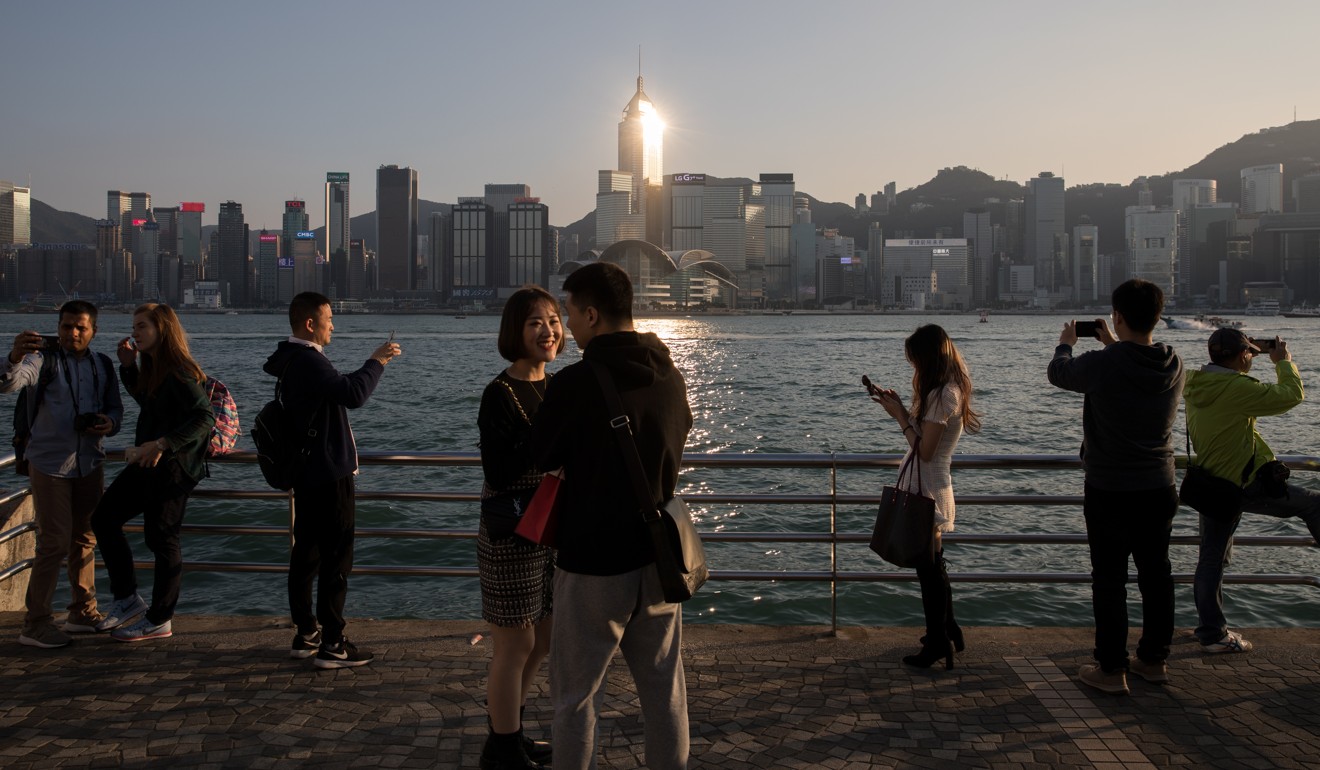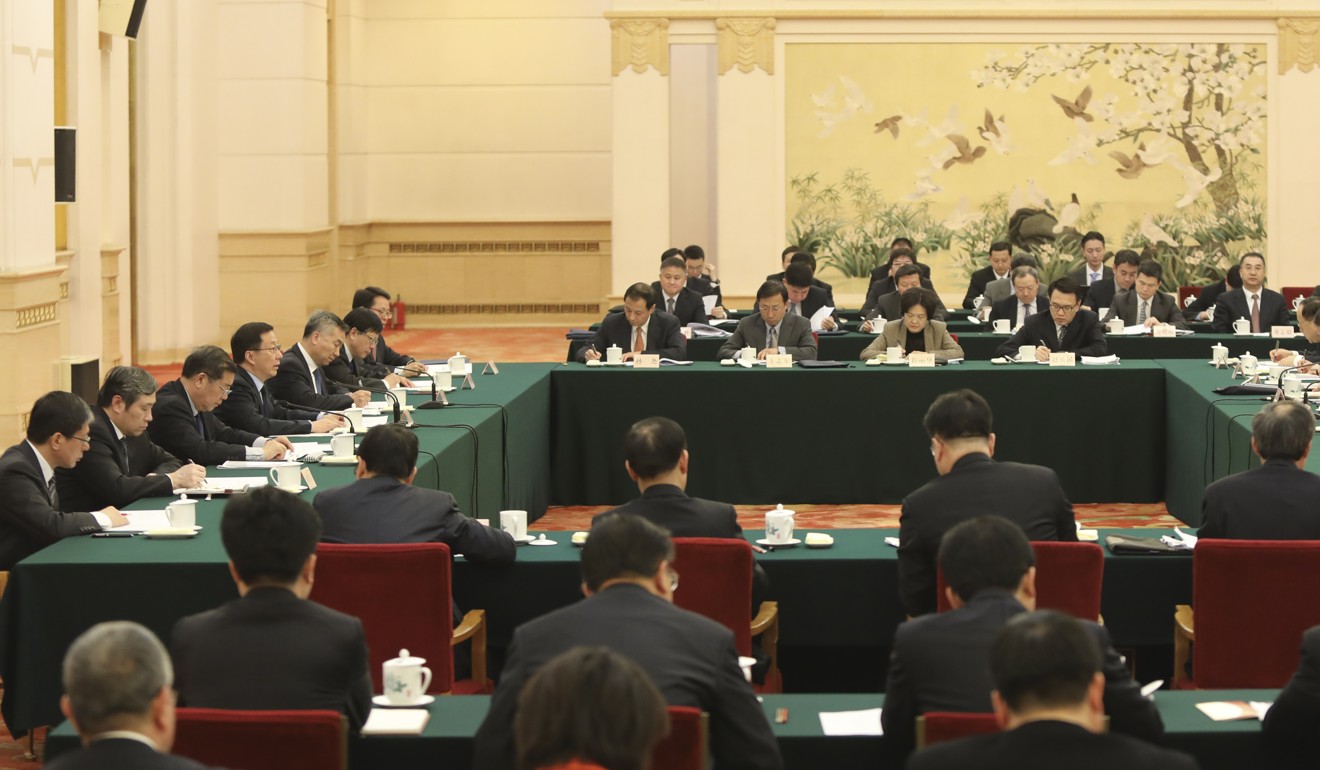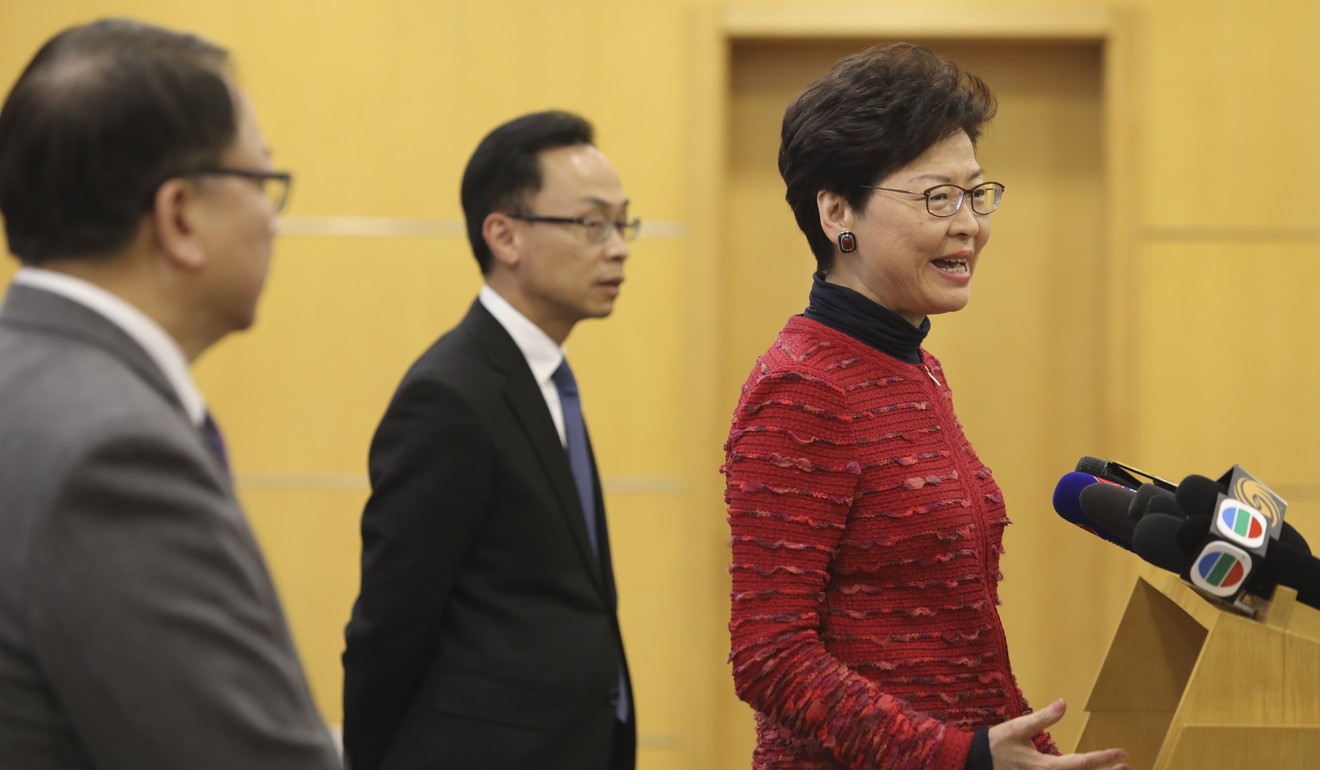
Lower taxes and subsidies as Beijing rolls out new measures to Greater Bay Area cities
- Hong Kong Chief Executive Carrie Lam announces measures after attending State Council meeting the development of Greater Bay Area
- First of the eight measures will offer more relaxed tax regime to Hong Kong professionals who travel frequently across border to work
Beijing has promised lower taxes and more subsidies for professionals and entrepreneurs from Hong Kong and 10 neighbouring cities that will form the “Greater Bay Area”.
Chief Executive Carrie Lam Cheng Yuet-ngor announced on Friday that the central government was rolling out a basket of new measures to ensure greater and easier cross-border integration, after she attended the second plenary meeting of the State Council’s leading group for the development of the Greater Bay Area.
“The meeting has decided that these eight specific measures will be implemented in 2019,” she said. “Vice-Premier Han Zheng also requires the governments of Hong Kong, Macau and Guangdong to put more policies into effect as they become ready later this year.”
The meeting in Beijing was the high-powered group’s first since the central government promulgated on February 18 its long-awaited blueprint to transform Hong Kong, Macau, and nine Guangdong cities into a world-class urban cluster, as well as an innovation and technology powerhouse rivalling Silicon Valley, by 2035.

In his opening remarks at the meeting he chaired, Han called on the three jurisdictions to cooperate closely and translate the ambitious blueprint into a feasible working plan.
“The outline development plan gave us a beautiful blueprint, but to make it come true, the tasks are rather heavy and difficult,” Han said. “Cities in the bay area must implement policies to meet their societies’ needs and expectations.”
The meeting was attended by officials including Guangdong party chief Li Xi and governor Ma Xingrui, and Macau Chief Executive Fernando Chui Sai-on.

The first of the eight measures, according to Lam, would offer a more relaxed tax regime to Hong Kong professionals who travelled frequently across the border to work in the bay area cities.
“A stay that lasts shorter than 24 hours won’t be counted as one day when the mainland authorities examine whether a Hongkonger should pay personal income tax under the mainland system,” Lam said.
Under the new personal income tax law amended by China’s top legislative body in September last year, Hongkongers living across the border for more than 183 days a year are subject to global taxation by mainland authorities from this year on. Relaxing the counting rule means their quota of 183 days will not be used up quickly.
The second new measure will ensure that Hong Kong professionals working in the bay area cities pay the same amount of tax as they would for equivalent jobs in their home city – the extra amount will be reimbursed by the provincial government.
Mainland China has a top personal income tax rate of 45 per cent, compared with Hong Kong’s 17 per cent.

“This is not for every Hong Kong residents working on the mainland, but some high-end or specific talents,” Lam said.
Measures to attract more young entrepreneurs from Hong Kong and Macau will see each of the nine Guangdong cities establishing at least one start-up hub, and they will be eligible for subsidies that are currently available only to local residents.
Universities and research institutes in Hong Kong and Macau will also be able to obtain funding from the provincial and municipal governments in Guangdong.
Hong Kong’s business and tech sectors welcomed the announcement.
“We are delighted that the central government has listened and responded to our suggestions and the worries of the Hong Kong business community to extending the tax provisions to all nine mainland cities,” Hong Kong General Chamber of Commerce Aron Harilela said.
“This has been persistently advocated by the business community and we are confident it will create even stronger economic development and facilitate the flow of talent.”
Federation of Hong Kong Industries chairman Jimmy Kwok Chun-wah also welcomed it as good news for local businesses.
“We often cross the border for short meetings that are counted as full days,” he said. “Many local tech talents could also be hired by mainland firms, but the higher tax rates have deterred them.”
Michael Hui Wah-kit, vice-president of the Hong Kong Chinese Importers’ and Exporters’ Association, hailed the measures as “important breakthroughs”.
“The bay area needs the flow of talent, but people are concerned about paying more tax,” he said. “These policies enable them to embrace opportunities without having to worry much.”
Denis Huen Yin-fan, a 31-year-old inventor and chief executive of MedEXO Robotics, said subsidies would encourage Hong Kong entrepreneurs to expand their businesses in Guangdong.
“Different cities already have different initiatives to encourage entrepreneurship … but this is the first time it has been made clear that Hong Kong people in the bay area should benefit from them,” he said.
The remaining measures were aimed at facilitating faster flows of people, vehicles and goods, according to Lam.
“A pilot project will be implemented in all nine Guangdong cities to allow Hong Kong and Macau residents to access more public services using their travel permit to the mainland,” Lam said.
“In phases and in an orderly manner, the Hong Kong-Zhuhai-Macau Bridge will be open to more private vehicles travelling from Hong Kong to the mainland.
“The same policy won’t be applied to cars from Guangdong due to limited capacity in our city.”
She also noted that the so-called Single E-lock Scheme jointly launched by Hong Kong customs and their mainland counterparts three years ago to facilitate logistics flow through seamless clearance services would be extended to all goods coming from the bay area cities.


